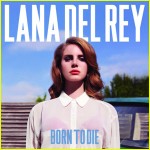Why is that you can’t listen to mainstream radio now without hearing totally over the top productions? There was a time when you could write a good song, record it in a morning, release it the next day and have a gold record a week later. Why isn’t a good song with a few good hooks enough anymore?
You must be getting the hang of this by now; that’s a rhetorical question. I’m not really asking for your opinion, it’s just a way of getting to my next pithy observation. The major artists are so desperate to maintain their profile and their increasingly fickle fanbase that nothing’s sacred and jumping the shark is what you have to do to keep up with Lana del Rey (or Lizzie Grant before the makeover).
Did you know that successful pop music producers have the ethical standards of the Borgias and a relentless urge to force us to listen to their work (sorry, rhetorical again)? So, at a time when major artists are desperate to stay at the top of the slippery pole, here’s what happens.
One of the biggest artists in the world, Beyonce, releases the song “Love on Top” and it’s a really good song performed by a great singer. So you don’t need any clever tricks do you? No posse of “C” list rappers, no credible guest vocalists, no Autotune and definitely no Mark Ronson. You might think there aren’t many more production tricks you can pull. Well, let me tell you about the trucker’s gear change.
It’s a little trick which has been around for decades and it’s really effective. When you get towards the end of a pop song and you’ve run out of verses, you repeat the chorus a few times to get you to the three and a half minute mark. It can get a bit tedious hearing the chorus three of four times but you can make it more exciting by moving the pitch (or modulating) upwards; it gives it a lift and it can be really easy to do. But it’s not usually very subtle which is why it’s called a trucker’s gear change.
Usually one of these is enough to keep up the interest to the three-thirty mark: occasionally you get two (Northern Soul classic “The Snake” by Al Wilson for any trainspotters). So how many do we get in this Kitsch ‘n’ Synch production? We get four; count them next time you hear it. How desperate is that when you have a good song to start with? Was it an engineer who saw the transpose function months ago and went a bit tech-happy when he finally got a chance to use it?
What if the song doesn’t finish at three minutes, thirty seconds? What if it just keeps going, moving to a higher key every chorus? Maybe it’s actually a twenty minute mix that only our dogs and cats can hear after 5 minutes; my cat was strutting his stuff five minutes after I thought the song had ended, which is surprising because I thought he was much more into Rizzle Kicks.
Do us all a favour, just give us the song without any gimmicks and trust us to decide how good it is.
 If there’s one word I hate hearing in connection with performers, it’s “entourage”. So it’s fair to say that when I heard that Whitney Houston had been found dead by a member of her entourage, it pushed all of the wrong buttons. I just wish that artists like Whitney Houston and all of the other fractured divas were able to look at their retinues and separate the ones they really needed to help them with their careers from the leeches who attach themselves to anyone who looks likely to achieve any kind of success. So how did the young newcomer from the 80s come to this?
If there’s one word I hate hearing in connection with performers, it’s “entourage”. So it’s fair to say that when I heard that Whitney Houston had been found dead by a member of her entourage, it pushed all of the wrong buttons. I just wish that artists like Whitney Houston and all of the other fractured divas were able to look at their retinues and separate the ones they really needed to help them with their careers from the leeches who attach themselves to anyone who looks likely to achieve any kind of success. So how did the young newcomer from the 80s come to this?
In 1985 I got my hands on a promo copy of a 12-inch vinyl sampler by a new young singer who was the next big thing. I won’t bore you with the family connections that were being used to launch her career; you can find them anywhere online and they were completely redundant. It didn’t matter who she was related to, she had a fabulous voice. The lead track on the sampler was a song called “Someone for Me” which I loved, but didn’t even get a single release. Another track on the sampler was “How Will I Know”, which I wasn’t that bothered about; shows how much I know.
What was obvious from the four tracks on the sampler was a voice that you couldn’t ignore under any circumstances. I’m not claiming any credit for spotting a talent before everyone else because it was obvious to anyone who didn’t have tin ears that Whitney Houston had a phenomenal voice. Everything which happened after that promo was obvious; huge success as a singer and then as an actress (following the Diana Ross trajectory) and the almost inevitable accumulation of a retinue of stylists, arrangers, procurers and Dr Feelgoods. And that’s before you get to the unsuitable partner.
For 10 years Whitney Houston could do no wrong; then, as the hits began to dry up, the gossip started. Drugs, domestic violence and diva behaviour all became subjects of speculation in the media, gradually eroding the wholesome all-American reputation the industry had worked so hard to create. Unfortunately, it wasn’t just speculation; the truth was probably a lot worse.
After the acting and singing success of “The Bodyguard” in 1992, it was difficult to picture a continuing upward path; how could anyone top that? By the late 90s the preppie, good girl reputation had been shredded; unreliability and instability were now the norm and bad news stories were everywhere. From there on in, Whitney’s history was a cruelly long suicide note; everyone knew the ultimate outcome but tried to pretend that everything would work out fine. Which brings us back to the entourage.
Whitney Houston had obviously been battling with her personal demons over a long period of time but there isn’t much hope of winning this battle if no-one close to you is willing to confront you with your problems; denial becomes a very easy option and the outcome is inevitable. It’s such a pity that the circumstances of her death leave us digging over her problems rather than celebrating her many achievements. As an antidote to all of the negativity, try having a listen to any of the greatest hits collections and remember how great that voice was; that’s a fitting tribute.
 The problem with Lana Del Rey’s Born To Die is not whether she’s indie or pop, it’s not if she’s an ‘authentic’ artist or focus-grouped, the daughter of multi-millionaire pretending she’s been evicted from Dale Farm or that she was previously known as plain ole Lizzie Grant whose debut album has mysteriously disappeared from all on-line stores.
The problem with Lana Del Rey’s Born To Die is not whether she’s indie or pop, it’s not if she’s an ‘authentic’ artist or focus-grouped, the daughter of multi-millionaire pretending she’s been evicted from Dale Farm or that she was previously known as plain ole Lizzie Grant whose debut album has mysteriously disappeared from all on-line stores.
These things shouldn’t matter, great music is just that and where it derives from shouldn’t be that important. No, it’s that song you probably already know that’s causing all the problems; Video Games. I’d seen a picture of LDR, only one and probably on Pitchfork, and she looked like a wispy, pre-Raphaelite indie princess and I wasn’t really that interested in how she sounded, I’d already drawn my conclusions, made a judgement. I was surprised that the song beneath the picture was called Video Games as it didn’t fit with this girl’s aesthetic; she looked so other-worldly to be singing about something so last century. So I clicked play and fell down the rabbit hole.
The brilliance of this song is not matched in this collection and that’s fine, most artists don’t even come close to making a record of this magnitude in the whole of their careers. This song will be covered by countless artists over the next 20, 30 years and remembered for a lot longer. But LDR, or maybe her ‘team’ as so many of her critics like to presume she has, has decided that she needs to try and rewrite this song time and again over the course of this album, and it’s exhausting. Part of the beauty of Video Games is that has a sadness and beauty that somehow really connects with our time right now. Like David Lynch, who Del Rey’s aesthetic and sound is often compared to (look at the album cover) , it’s hard to figure out which decade if any her view belongs to but also, like Lynch, a chord is struck and you’re transported somewhere familiar but unidentifiable . It’s the only song on the album that’s produced by Robopop who have been replaced by hip hop uber producer Emile Haynie. They produce the entire remaining album and subtle it isn’t. Strings are still here, they open almost every track and they’re thrilling, hip hop loops and samples of party-girl yelps and screams have also been added and big trip hop beats invade almost every single song after the first verse so instead of replicating the mood of Video Games which would appear to be the intention, it kills it dead. Every song has been polished to a high sheen, each a facsimile of the one that preceded it. Lyrical themes are established early on; the Hamptons, self-destructing prom queens, red dresses, high heeled shoes, perfume and bad, very bad older men. It’s very self conscious and just becomes gimmicky and shallow the longer it plays.
That’s not to say that the songs themselves aren’t good, some of them are indeed brilliant. Radio is the kind of self-celebrating song that Britney Spears in one of more post modern moments (rare I know) would kill for; the partially rapped, uplifting, National Anthem will become just that and the chiming Lucky Ones could soundtrack an early Doris Day vehicle but doesn’t sound ironic. Born to Die, the follow-up to Video Games is big and blousy and drama queen dark; it works perfectly. Once these songs in particular, and one or two others, are heard in isolation they begin to make sense and really do pack a punch but included as part of this album, they only help to show up the flaws of this collection as a whole.
This is not a bad album, but it seems to have been made as quickly as possible to capitalise on that song we spoke of earlier and does succeed it presenting a concept of a Pop Star. But LDR seems like the kind of artist who the word ‘muse’ was made for. I imagine that there will be a long queue of predominately male song-writers and producers who would love to see Lana interpret their vision of her and she should pick and choose carefully as this could really suit her and will guarantee that she fulfils her potential as fascinating new star.


